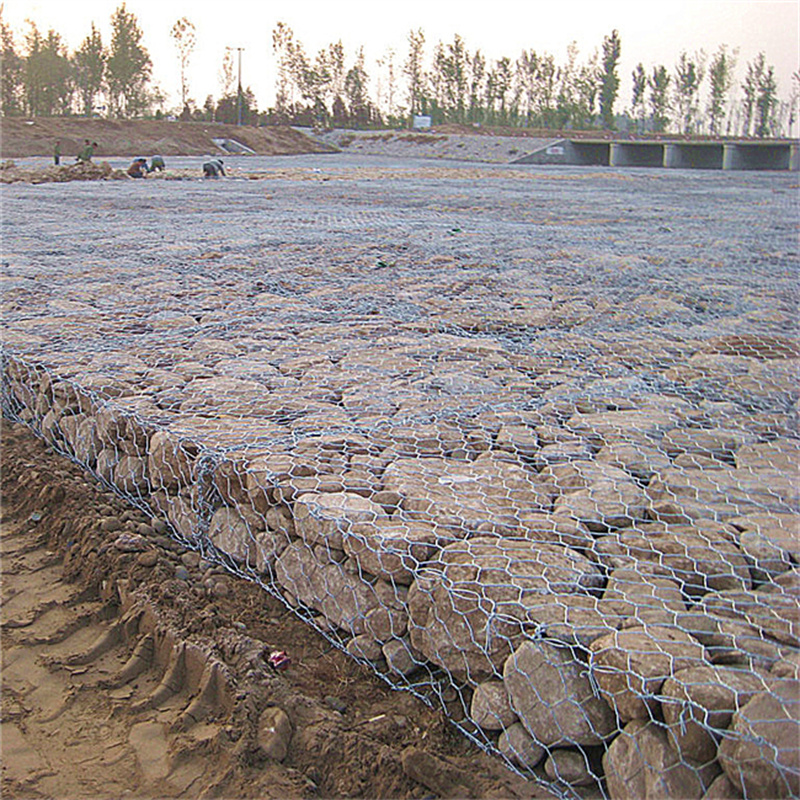Okt . 14, 2024 00:49 Back to list
high quality gabion wall lifespan
Understanding the Lifespan of High-Quality Gabion Walls
Gabion walls have emerged as a popular solution for erosion control, landscape architecture, and civil engineering projects. Made of stones enclosed in wire mesh cages, these walls not only provide stability and durability but also blend seamlessly into natural landscapes. However, one fundamental question arises for contractors, homeowners, and engineers alike what is the lifespan of high-quality gabion walls?
Factors Influencing Gabion Wall Lifespan
The lifespan of gabion walls can vary significantly based on several factors
1. Quality of Materials The longevity of a gabion wall is heavily reliant on the quality of the materials used. High-quality galvanized or stainless steel wire for the mesh cages can resist corrosion and damage from environmental elements, extending the wall's lifespan. Similarly, using durable, weather-resistant stones ensures that the wall remains intact and aesthetically pleasing over the years.
2. Construction Techniques Proper construction practices play a vital role in determining how long a gabion wall will last. Engineers and builders must consider factors such as the size of the stones used, the design of the wall, drainage provisions, and the gradient of the area where the wall is installed. An improperly constructed wall, no matter how high-quality the materials, will be prone to failure and erosion.
3. Environmental Conditions The geographical and climatic conditions of the area also impact the lifespan of gabion walls. In areas prone to heavy rainfall, flooding, or shifting soils, additional concerns come into play. Well-draining materials and proper installation techniques can alleviate some of these issues, but extreme conditions can reduce a wall’s effectiveness and lifespan.
4. Maintenance Although gabion walls require minimal maintenance compared to other retaining wall types, periodic inspections and maintenance can significantly extend their service life. Addressing any signs of rust in the wire mesh, filling gaps with additional stones, and ensuring proper drainage will help manage the longevity of the wall.
high quality gabion wall lifespan

5. Overall Design and Purpose The intended use of the gabion wall also influences its lifespan. A wall built to manage lightweight soil erosion may last longer than one used to retain heavy loads in a construction site. Understanding the specific purpose can guide design choices, resulting in a wall that meets not only functional requirements but also longevity expectations.
Expected Lifespan of High-Quality Gabion Walls
Typically, high-quality gabion walls can last anywhere from 10 to 100 years, depending on the aforementioned variables. In many cases, high-quality materials combined with excellent construction techniques and regular maintenance can see these walls lasting well over 50 years, demonstrating their durability and resilience.
Benefits of Gabion Walls
The impressive lifespan of gabion walls is just one of their many advantages. Their adaptability to various landscapes and natural aesthetics makes them a favored choice among environmentalists and architects alike. Additionally, they are environmentally friendly, as they utilize natural materials and encourage vegetation growth, which further aids in erosion control.
Conclusion
In conclusion, while high-quality gabion walls are known for their longevity, many variables influence their lifespan. By investing in superior materials, employing skilled construction methods, and maintaining the walls, property owners can ensure that these structures serve their purpose effectively for decades. Ultimately, understanding these aspects helps in making informed decisions about gabion walls in various applications, paving the way for sustainable and durable landscaping and civil engineering solutions.
-
The Role of Galvanized Gabion Mesh in Riverbank Protection
NewsJun.26,2025
-
The Role of Gabion Basket Raised Bed in Sustainable Gardening
NewsJun.26,2025
-
Quality Assurance of Wire Mesh Gabion Baskets
NewsJun.26,2025
-
Installation Guide for Welded Gabion Box
NewsJun.26,2025
-
How to Choose the Right Gabion Box
NewsJun.26,2025
-
Different Types of Gabion Wire Mesh
NewsJun.26,2025
-
Why PVC Coated Gabion Mattress Is the Best Solution for Long-Term Erosion Control
NewsMay.23,2025






